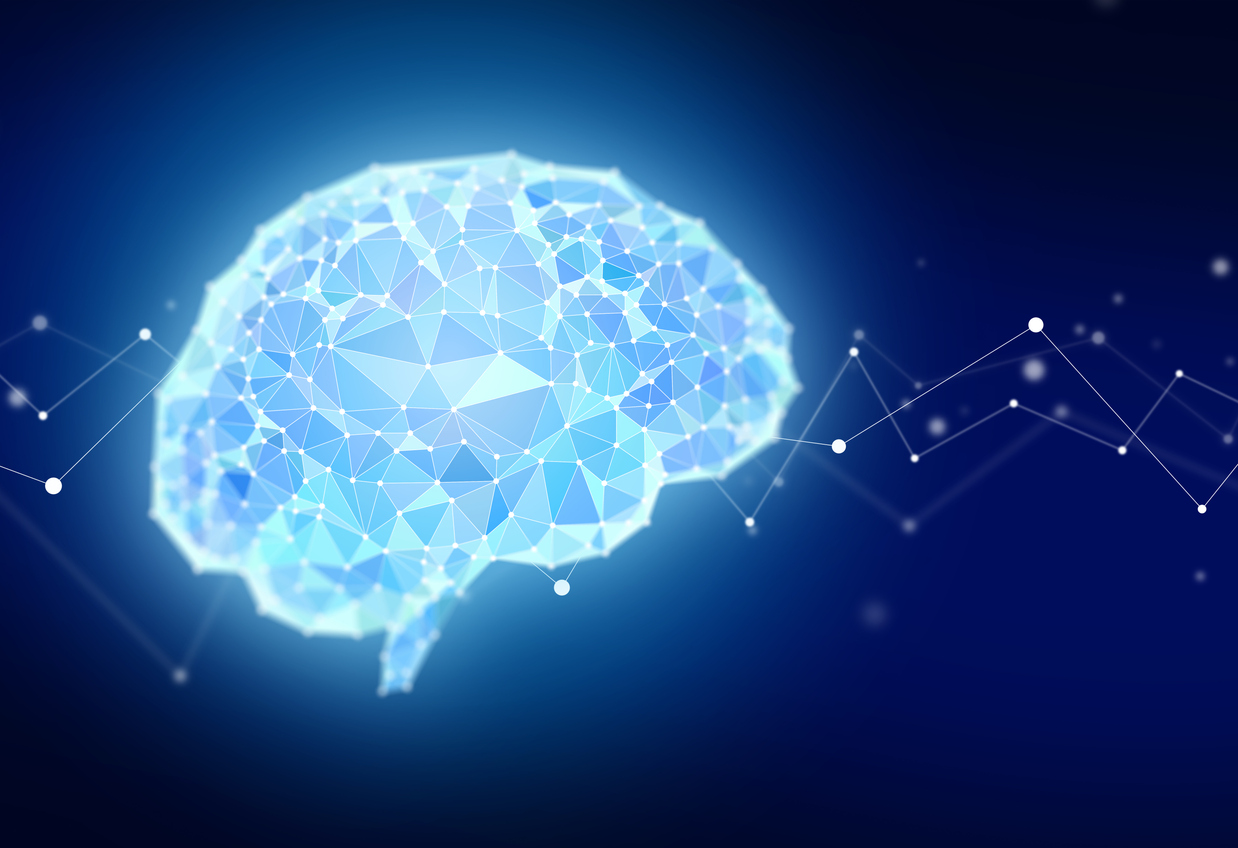
People who have Down syndrome are living longer than ever before, and a significant number of them will go on to develop Alzheimer’s disease. This article explores the connection between these two disorders, and provides a summary of interventions that may help people who have both conditions.
Margaret*, a 47-year-old woman with Down syndrome (DS), had lived successfully in her parents’ home until medical and behavioral changes made it necessary to move to a residential program.
In addition to increased moodiness and episodes of agitation, she had become less interested in being with others whose company she formerly enjoyed. She had more trouble with the tasks that she had previously mastered at her work center, and at home, she was no longer able to work the TV remote without exasperation. Her balance was less secure.
Urinary incontinence, a new symptom, led to an examination for infection, but the result was negative. An evaluation of her sleep identified the presence of obstructive sleep apnea. Treatments for sleep apnea were implemented that improved her daytime alertness, but her agitation wasn’t helped. When she had a seizure, a thorough medical evaluation eliminated the usual causes for seizures and cognitive decline in a person with DS and concluded that Alzheimer’s disease was a likely explanation.
Knowing this, the residential staff readjusted their expectations of Margaret’s performance. They recognized that activities formerly enjoyed might now be too difficult and frustrating. They designed a less complex role for her at work and reorganized her transportation to provide greater assistance. A cholinesterase inhibitor medication was started, and another “as needed” medication was available on the rare occasions when her agitation did not respond to reassurance and redirection.
*The name and details were changed to protect privacy.
Chromosome 21
DS is a genetic disorder that results from the presence of part or all of an extra 21st chromosome. It is one of the most common of chromosomal disorders. It occurs by chance, although its likelihood is increased among babies born to older parents (and particularly to older mothers). A child born with DS is slower to develop physically and mentally, resulting in mild to moderate intellectual disability. Many individuals with Down syndrome are able to live rewarding and rich lives, but they may require special education, an appropriate work environment, support in financial or legal matters, or other types of assistance to optimize their quality of life. People with DS are at risk for the development of characteristic medical problems including congenital heart defects, leukemia, hypothyroidism, constipation, periodontal disease, instability of the cervical spine, sleep apnea, hearing and vision disorders, and seizures.
The Alzheimer’s Connection
Researchers in Alzheimer’s disease (AD) have been very interested in DS because the 21st chromosome, the extra DNA present in this syndrome, is where the gene that codes for amyloid precursor protein (APP) is located. Beta-amyloid protein, a major component of amyloid plaques in AD, is created from APP. The presence of an extra 21st chromosome seems to increase the production of beta-amyloid and amyloid plaques, accounting for the very high rate of AD in adults with DS. Neuroimaging changes consistent with AD are present as early as one’s 20s. A recent report suggests that 75 percent of DS adults age 65 and older have AD, which can become clinically apparent in DS adults as early as their 30s.
Thanks to increased awareness of the medical conditions that occur in people with DS, affected individuals are now living longer than ever before. Life expectancy for people with DS has grown dramatically—from age 25 in 1983 to age 60 today. This means that more people with DS reach middle and later adulthood, the years during which they are likely to develop AD. Because people with DS already function at a lower cognitive level, it can be challenging to recognize when AD is developing. In many cases, too, the early signs of AD in DS are behavioral and emotional rather than cognitive. They can be missed or attributed to another medical cause or even to stubbornness or uncooperativeness. The problems with short-term memory may be obscured by other more evident changes, including reduced self-care, increased incontinence, gait problems, low mood, increased obsessions and compulsions, loss of interest in formerly engaging activities, changes in eating habits, and altered sleep.
Several formal tools are available to assess a person with DS and cognitive changes for help in diagnosing AD. The Dementia Screening Questionnaire for individuals with intellectual disabilities (DSQIID) is one readily available screening tool (see below for the internet address where it can be obtained).
Is it Really Alzheimer’s?
Although AD is a frequent development in adults with DS, it’s also important to look for other, potentially reversible causes for a person’s changed behavior or abilities. Testing for infections, sleep disorders, thyroid disease, metabolic abnormalities including B12 deficiency, disorders of vision and hearing, celiac disease, and medication side effects may identify a treatable cause of behavioral and cognitive changes.
Helpful Interventions
Although there is as yet no cure for AD, whether in DS or otherwise, there are many useful interventions to help DS adults with AD:
- Medical complications such as seizures must be addressed to protect health and safety.
- Medications called “cognitive enhancers,” including cholinesterase inhibitors such as donepezil (Aricept®), for example, and memantine (Namenda®), have been given to people with AD and DS to improve their attention and memory, though research on this special population is less plentiful than on people with AD alone and the benefits of these medications are limited.
- Some antidepressants may reduce agitation with minimal side effects, but sometimes, a stronger and more immediate medication is needed to address acute and severe agitation. A word of caution: the newer antipsychotics such as risperidone (brand name Risperdal, for example) or olanzapine (originally branded as Zyprexa) are occasionally used for this purpose in people with AD and DS despite their recognized increase in mortality risk and limited benefits in treating older people with AD and who do not have DS. In people with DS, their effectiveness is also limited, side effects such as sedation or muscle restlessness may be even more likely, and their effect on mortality risk is not known.
- When increased and persistent anxiety, obsessions, compulsions, or depression are present, medications may be necessary when environmental changes are insufficiently effective.
- In addition, a focus on adjusting the environment to the person’s changing needs can help maintain quality of life. Modifying demands on the person to limit experiences of frustration and failure will reduce agitation. When agitation does occur, it’s important to try to identify and address its sources. Redirection can diffuse problematic behaviors in many situations without the use of medications.
Summary
As improved medical treatment increases our population of older adults with Down syndrome, we will certainly see more people with both that condition and Alzheimer’s disease. The interventions described here can help improve lives and assist caregivers in understanding the assessment, diagnosis, and management of the cognitive and behavioral changes that can occur with both conditions.
About BrightFocus Foundation
BrightFocus Foundation is a premier global nonprofit funder of research to defeat Alzheimer’s, macular degeneration, and glaucoma. Since its inception more than 50 years ago, BrightFocus and its flagship research programs—Alzheimer’s Disease Research, Macular Degeneration Research, and National Glaucoma Research—has awarded more than $300 million in research grants to scientists around the world, catalyzing thousands of scientific breakthroughs, life-enhancing treatments, and diagnostic tools. We also share the latest research findings, expert information, and resources to empower the millions impacted by these devastating diseases. Learn more at brightfocus.org.
Disclaimer: The information provided here is a public service of BrightFocus Foundation and is not intended to constitute medical advice. Please consult your physician for personalized medical, dietary, and/or exercise advice. Any medications or supplements should only be taken under medical supervision. BrightFocus Foundation does not endorse any medical products or therapies.
- Risk Factors








